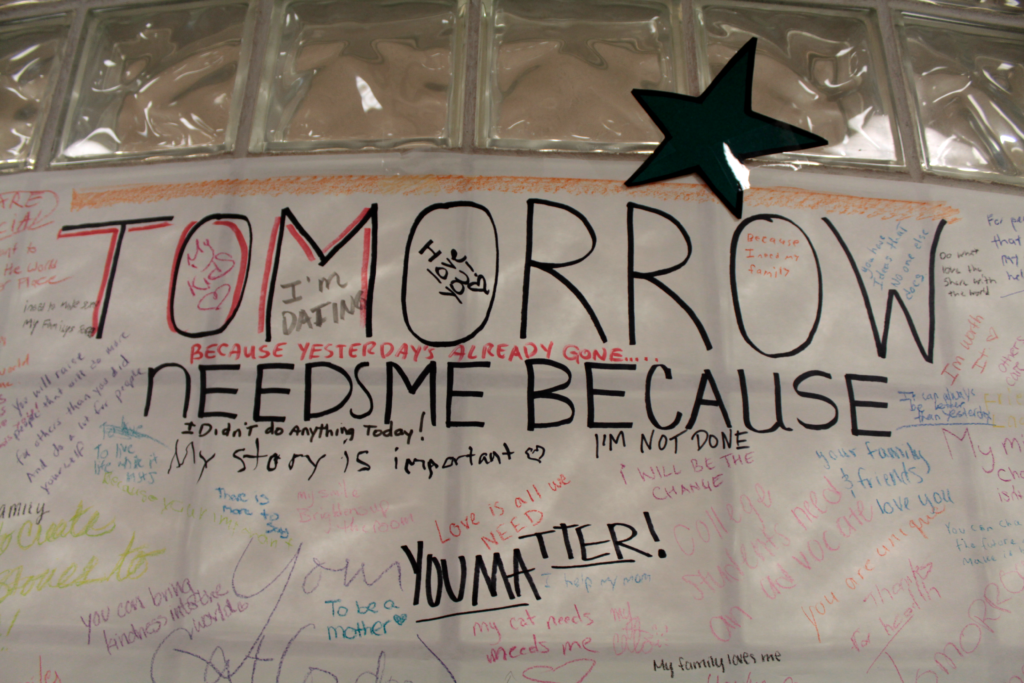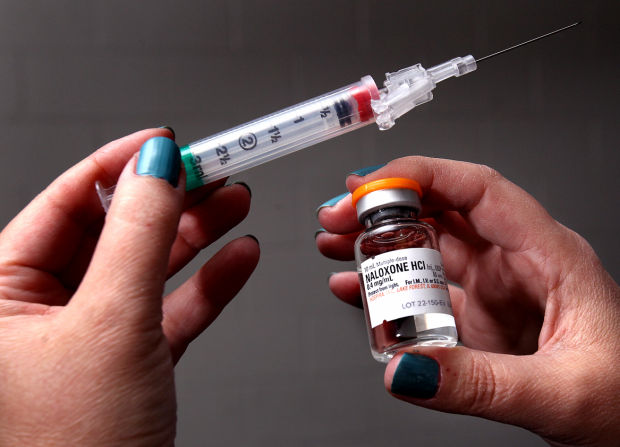Don’t Go it Alone, Help for Mental Health Struggles is All Around On and Off Campus
By Deidre Montague
Live WireStaff Writer
Originally published in the October 29th, 2018 issue of the Live Wire Newspaper
With the high profile deaths of celebrities, including fashion designer Kate Spade, chef and TV personality Anthony Bourdainand Chester Bennington, a singer and member of the band Linkin Park, who killed themselves in the last year the topic of suicide is becoming more prevalent as an important topic of discussion in our society – including among the population of college students.
To keep more people from doing so, Connecticut has published its Suicide Prevention Plan 2020. The data quoted within it gives a sense of the scope of the problem. According to the American College Health Association /National College Health Assessment Undergraduate Survey (2012), college students reported having the following circumstances involving their mental health: 44.6 percent had feelings of hopelessness; 85.2 percent felt overwhelmed, 29.5 percent felt so depressed that it was difficult to function; 49.9 percent felt overwhelming anxiety; 6.9 percent seriously considered suicide; and 5.5 percent intentionally cut, burned, bruised, or injured themselves; 1.2 percent attempted suicide.
Additionally, the survey showed that students who struggle with mental health issues, those who have had previous suicide attempts, those who lost a loved one to suicide, students who are veterans and/or currently on active duty, Hispanic/Latino students, and LGBT (Lesbian, Gay, Bisexual and Transgender) are at higher risk of attempting to kill themselves.
If you or someone you know, struggles with suicidal thoughts, are overwhelmed, feel overly anxious, or are having a hard time managing and coping with your emotions know that you are not alone. Live Wire Editor-In-Chief Nico Parker has attempted suicide and been hospitalized. He said reaching out for help, by calling the 21l emergency line – which will connect you to local resources – and to family and friends.
Parker said his father provides invaluable support, especially during difficult moments. “Be open to therapy, and if you do not feel comfortable with a therapist, it is okay to
continue looking for a therapist that you feel will help you the most,” he said. Medication, if prescribed by a medical professional or licensed clinician, can make a difference in helping to you to feel better about yourself and your life, he added. “It’s good to be ambitious in school, but your mental health is more important.”
There are also a number of campus resources for students struggling with suicidal thoughts. Campus counseling services are located in the Student Services Center (SSC), Room L120 – ask to speak to the counselor on duty. If you need to schedule an appointment that is not a crisis/emergency, but a personal matter, call 860- 512-3320. The counselors are trained staff of professional, master’s level counselors that help students with psychological, social, emotional and personal issues. All counseling services are free and confidential, which include crisis counseling, short-term individual counseling, and referral resources.
The campus also has formed the Manchester Community College Suicide Prevention Coalition, with the mission of staff members (faculty/program coordinator representatives, counselors, SGA members, and interested students) collaborating with local community agencies/resources to raise awareness of suicide prevention.
If you have a friend or family member who struggles with suicidal thoughts, there are Question, Persuade, and Refer, or QPR, training workshops provided by the college and Community Health Resources (CHR). They are located on campus and are open to students and the public. The one-to-two hour workshops will help you to recognize and respond to someone at risk of attempting suicide and get them to the help they need. The dates and locations of the QPR workshops are: Tuesday, Nov. 13, – 5:30 – 7 p.m., Room AST C210, and Thursday, Dec. 6, from 11 a.m. – 12:30 p.m., Room LRC A142. To attend any of the workshops, RSVP to Simone Powell by phone, (860) 730-8714, or email at SPowell@CHRHEALTH.ORG.
If you are in need of emotional support off campus, call the National Suicide Prevention LifeLine – 1-800-273-8255 – the Crisis Text Line – Text CONNECT to 741741 – or the REACH (Resources, Encouragement and Caring Hands) Warmline in Manchester at 866-927-6225, from 6 to 10 p.m., seven days a week.
No one struggling with suicidal thoughts has to suffer in silence. Please utilize any of the resources listed throughout this article. Help and support are waiting for you – as you are worth it.






